Posted on May 31, 2017 in
COLLEGE DAZE,
FEATURES

 Kassidi McKayla Kaminski is a sophomore studying Psychology in the Liberal Arts Honors Program at The University of Texas at Austin. After graduation she hopes to attend law school and is currently a member of Delta Gamma and a Young Life leader at Reagan High School.
Kassidi McKayla Kaminski is a sophomore studying Psychology in the Liberal Arts Honors Program at The University of Texas at Austin. After graduation she hopes to attend law school and is currently a member of Delta Gamma and a Young Life leader at Reagan High School.
COLLEGE DAZE | Writing The Next Chapter | By Kassidi McKayla Kaminski –
My roommate keeps cashews in the freezer. Although this seems strange to me, it makes perfect sense to her because when she was a child, someone important to her told her that that is the way to do it. Habits like these form over time, and many of the habits we have as young adults stem from what we were told to do in childhood.
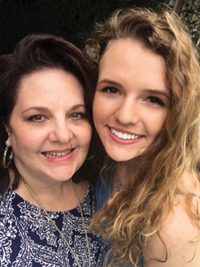
Aunt Stacey Sembrick and Kassidi Kaminski.
It’s the tidbit Grandpa told you about saving money, the trick Mom showed you in doing the laundry, or the advice Dad gave you about car maintenance. These unique idiosyncrasies on how to do life leave little impressions on a person. They’re planted like flowers in childhood, watered with a recurring memory, and bloom in times of usefulness. Many of my flowers were planted on a family vacation to Wimberley, Texas during the summer I was eight-years-old. I’ve thought about this trip enough to water an entire field of little life impressions.
For example, I don’t store cashews in the freezer, but I do cook all four sides of the bread slices when I make a grilled cheese. My Aunt Stacey – attempting to expand my picky palate – stood in front of the kitchen stove and smeared a small square of butter on each slice of bread. I watched mesmerized as the squares oozed into partially melted globs and seeped into the bread’s crevices. After these two sides turned golden brown, she flipped them over and buttered the insides. “Butter’s really not all that good for you, but we’re from the South. Butter is a food group down here. You’ve got to butter all four sides if you respect yourself at all.”
I ate a grilled cheese at every meal for the rest of the trip. Whenever I make one on my own now, this old memory springs forth like a golden sunflower. I’ll chuckle and send telepathic gratitude to Aunt Stacey and respect myself with her four-sided buttering process.
Culinary expertise was not Aunt Stacey’s only critical lesson to me on this trip. She is the sole reason why I avoid clothes dryers. After a full day of floating on the river, Aunt Stacey approached the kitchen table where the rest of the family was sitting. With a guilty look and averted eyes, she told me, “Hey, Kass. You know your Kim Possible swimsuit? Well I guess I left it in the dryer too long, and all the designs kind of peeled off. I’m sorry, sweetie!”
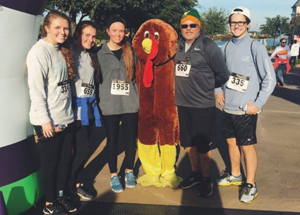
2016 Turkey Trotting for a Cause: Kassidi Kaminski, Noelle, Natalee and Uncle Ronnie Sembrick and Kolton Kaminski.
I stopped chewing my grilled cheese and stared at her, heartbroken over the destruction of my favorite swimsuit. She handed me the victimized fabric. Kim was missing half of her face and most of her appendages. Mom then told me that just because dryers are useful doesn’t mean that they’re always necessary. Every time I do my own laundry, this memory screams for attention like a bright bird-of-paradise. I might not buy a dryer when I have a house of my own.
My Uncle Ronnie is responsible for the outdoor life lessons I learned on that trip. He’s the one who taught me how to fish and told me that the trick to baiting the hook is to swiftly push the worm on so worm guts don’t spill everywhere. I sobbed the first time I baited a hook because I didn’t want to hurt the worm.
“Kass, there’s no need to be crying, now,” Uncle Ronnie calmly explained. “God put everything on this earth for a purpose, and this is what worms were made to do. You’ve got to look at everything in life that way and know that everything happens for a reason.” Although today I don’t cry over little worms, I do cry over serious things, like losing the people I love. But I feel a soft lily bloom in my mind when I remember Uncle Ronnie’s philosophy, and I understand that some people’s purposes just finish before the rest of us.
Later that day, Uncle Ronnie taught me that the big, fuzzy bumblebees don’t sting you. “Looks can be deceiving” were his words on that. Among my friends I’m known as the fearless one. I channel the boldness of my inner snapdragon and insist that it doesn’t make sense to be scared of something that doesn’t prove to be worthy of my fear.
The most striking memory I have of Uncle Ronnie’s life lessons is the afternoon I discovered he had eczema. I had assumed the rubber of the inner tubes had torn up his elbows and legs, but Uncle Ronnie dismissed my assumption with a chuckle.
“It’s just a skin condition. It doesn’t hurt too much, but it doesn’t really go away.” I recoiled in disgust and feared his scaly red patches were contagious. But I’m forever appreciative of the moment his smile faded and a firm admonition escaped his mouth: “Never make a person feel bad for something they can’t control. Help them with it. Learn more about it. But don’t ever look at someone like that again.” A white carnation blooms whenever I think of these words, reminding me to treat people with pure kindness and love.
Practically, learning how to make a Southern-style grilled cheese and how to dry my clothes will get me far in life. Knowing how to bait a hook is also a good thing. But the three life lessons my uncle taught me bloom constant and firm in my mind. I live fearlessly in search of my life’s purpose. I don’t waste time fearing things that don’t deserve it, nor do I shame those around me for the uncontrollable things that make them unique. These three flowers never wither.








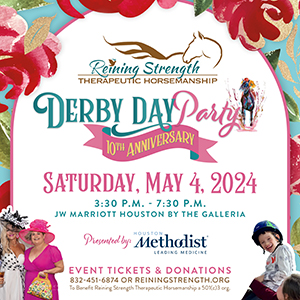
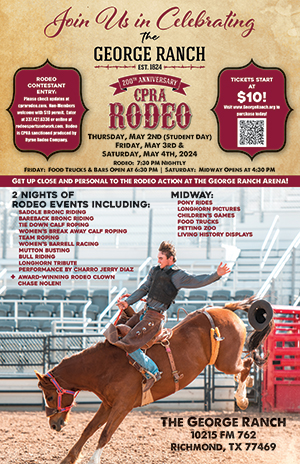

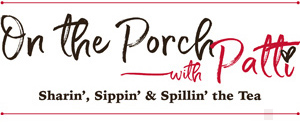



 Kassidi McKayla Kaminski is a sophomore studying Psychology in the Liberal Arts Honors Program at The University of Texas at Austin. After graduation she hopes to attend law school and is currently a member of Delta Gamma and a Young Life leader at Reagan High School.
Kassidi McKayla Kaminski is a sophomore studying Psychology in the Liberal Arts Honors Program at The University of Texas at Austin. After graduation she hopes to attend law school and is currently a member of Delta Gamma and a Young Life leader at Reagan High School.
